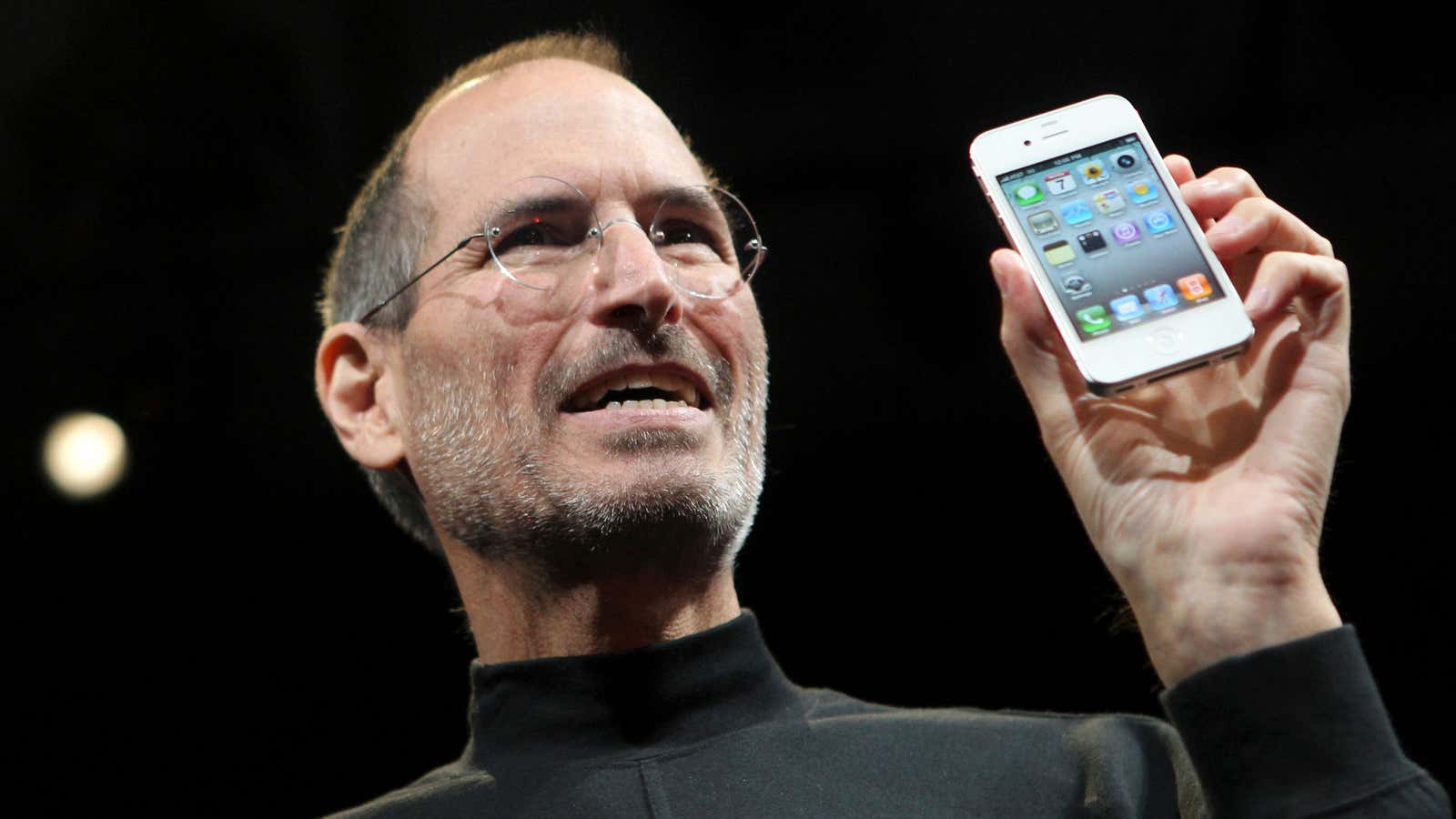“Leadership” is a famously difficult term to define. It’s a challenge both for practitioners of leadership, and those who spend their lives studying leadership as a discipline in its own right. The Bass Handbook of Leadership observed that “often, a two day meeting to discuss leadership has started with a day of argument over the definition.” The leadership scholar Joseph Rost found 221 definitions of leadership in 587 examined publications.
Of course, few leaders are so concerned with quibbling over definitions. In our experience, most people think of leadership as the process of influencing a group toward some defined outcome. This definition suggests that leadership is the process of one person herding the group toward goals, and that leaders at the top craft and direct those endpoints. Perhaps worse, our quest to understand leadership has followed a consistent but always insufficient pattern: We’ve studied individual leaders and come to think of leadership as simply what leaders do.
In our book, Leaders: Myth and Reality, among a diverse range of other leaders we consider the case of Winston Churchill, a name now synonymous with wartime leadership. In much the same way that Einstein is the paradigm of genius, people speak of Churchill’s leadership in hyperbolic terms. And yet Churchill’s record was hardly consistent, and only occasionally deserving of such hyperbole. It was a distinctive audacity that made him effective and became the hallmark of his leadership. But how well that quality served him depended greatly on the particulars of the situation. Churchill’s audacity gave him the courage to fight rather than negotiate terms with a seemingly invincible Nazi Germany. In other instances, it periodically also resulted in some disastrous forays, such as at Gallipoli.
In this story, as in countless others, lies the root cause of the mythology of leadership: its relentless focus on the leader. For years, human beings have searched for the secret of leadership by studying why certain leaders achieve enviable results where others do not. To the detriment of the study of leadership, rarely do we look to the individuals around the senior leader. We assume the leader controls the process, undervaluing the role of followers and situational context. Moreover, we pretend that leadership is goals-driven, and that good outcomes can be gained through the correct formula of effective leadership. We wrongly believe that what happened in one leadership instance can be replicated in another.
This common understanding of leadership, when held up against the reality of how leadership actually works, reveals three myths, which we argue collectively distort our view of leadership. The mythology of leadership leaves us grappling to understand the disconnect between the ideal of leadership we’re often led to believe and the reality of how it occurs.
- The Formulaic Myth: In our attempt to understand process, we strive to tame leadership into a static checklist, ignoring the reality that leadership is intensely contextual, and always dependent upon particular circumstances.
- The Attribution Myth: We attribute too much to leaders, having a biased form of tunnel vision focused on leaders themselves, and neglecting the agency of the group that surrounds them. We’re led to believe that leadership is what the leader does, but in reality, outcomes are attributable to far more than the individual leader.
- The Results Myth: We say that leadership is the process of driving groups of people toward outcomes. That’s true, to a point, but it’s much broader than that. In reality, leadership describes what leaders symbolize more than what they achieve. Productive leadership requires that followers find a sense of purpose and meaning in what their leaders represent, such as social identity or some future opportunity.
The power and prevalence of this mythology of leadership rival that of religion or romance—these myths seem universal and inseparable from our existence as humans. As with religion, leadership offers value by crafting a narrative that helps make sense of the world around us, even when it eludes our comprehension. Leadership provides a framework for assigning causality when things go well, and equally a way to assign blame when things go otherwise. And as with romance, leadership holds our attention and captures our imagination, stirring feelings that we don’t always understand.
Despite this utility, the mythology often leads us astray, with adverse consequences and risks to society. When we buy into the mythology, our leadership models are made less effective, and we construct elaborate processes to select, assess, and train leaders who perpetuate existing weaknesses.
And dangerously, we create and sustain false expectations of our leaders. In some cases, savvy leaders exploit the mythology, enriching themselves while corroding the prosperity of the organizations they lead. In other instances, the mythology becomes exposed, leading to disappointment and cynicism about leadership.
These sticky ways of thinking mean that it is difficult to make the singular notion of the “great leader” we grow up with move aside in favor of more clear-eyed realities.
In reality, leadership is about much more than outcomes; it is equally concerned with how complex human groups optimize their cooperation and how individuals find symbols of meaning and purpose in life. This optimization and the immense power of symbol emerge from the interaction of a wide range of constantly shifting variables that include far more than the individual leader. Leadership is coproduced by leaders and followers, emerging between the influential and charismatic who crave it, and the hopeful and fearful who demand it.
In the end, we need to lay the myth aside and choose to lead—or decide not to. We often won’t control whether we succeed or fail, or whether we’re celebrated or excoriated for what we do. But we can control what we genuinely try to do. Perhaps this is how we should hope to be judged: not as mythical heroes, but as individuals who have done their best to move humanity forward.
Adapted from Leaders: Myth and Reality. Published with permission from Portfolio.
